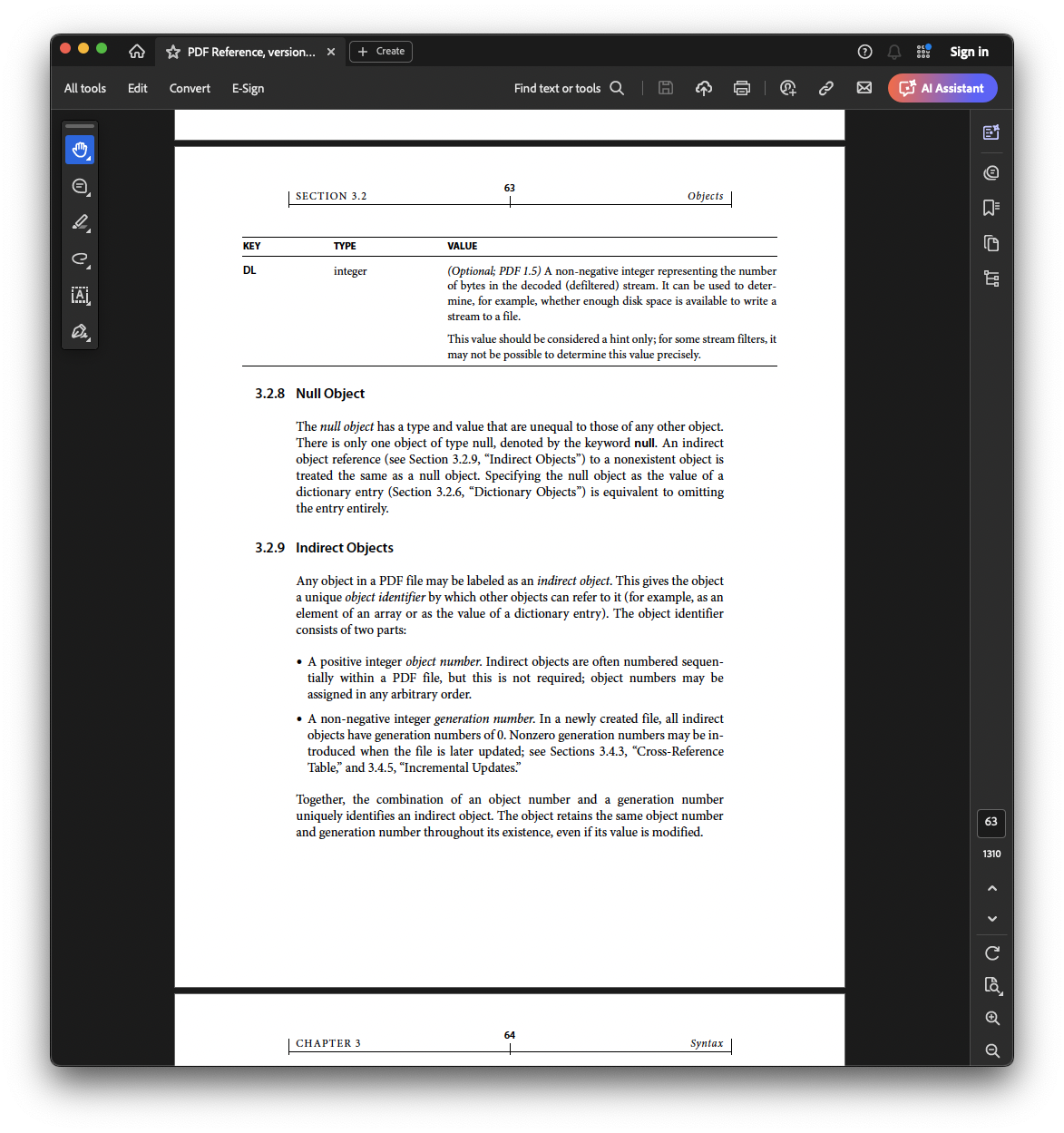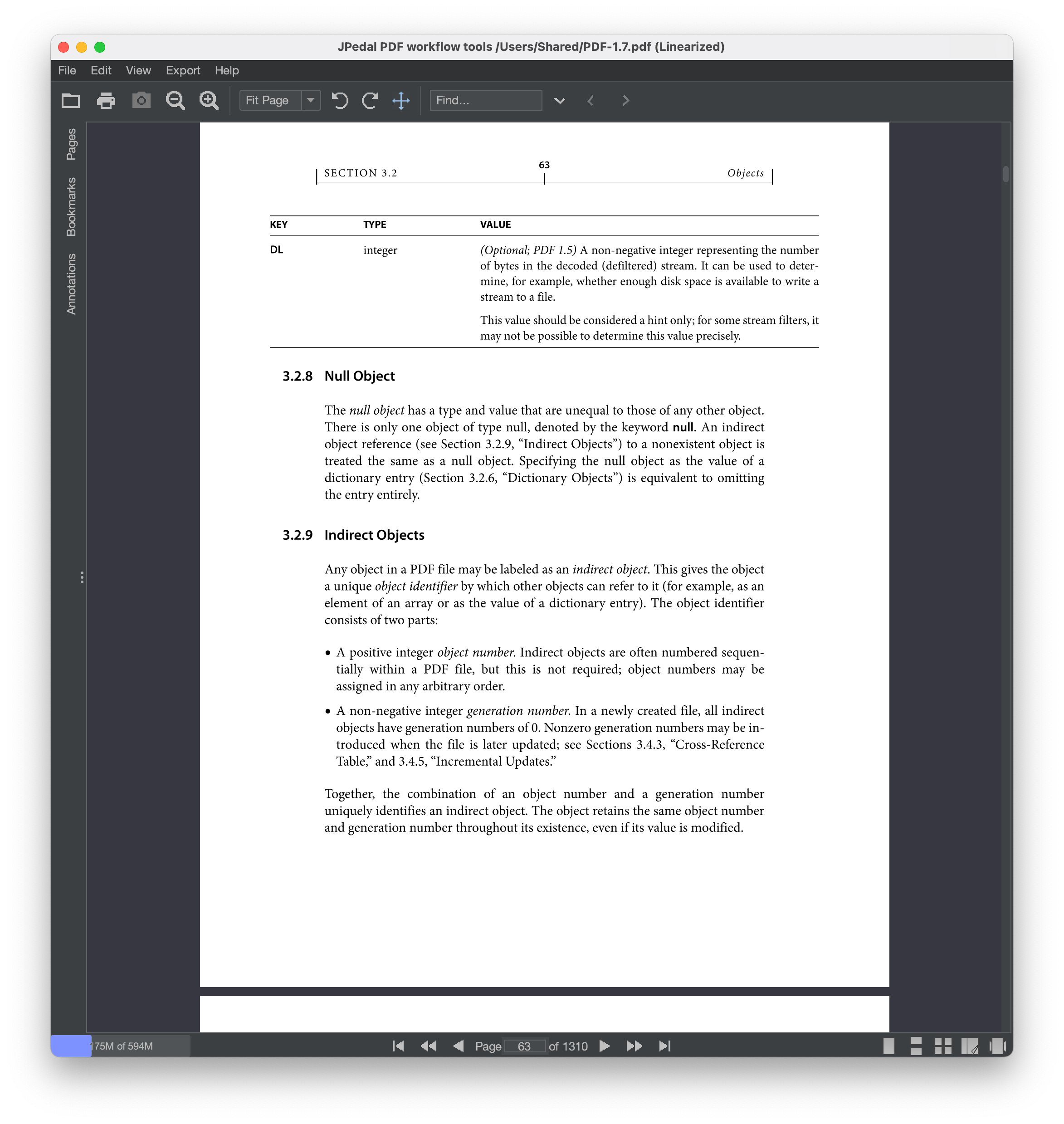Convert, Print, Process, Sign and View PDF Files in Java
JPedal is a Java PDF Library that makes it easy for Java developers to work with PDF Documents in Java.
JPedal is the only PDF Developer library to include all these features...
Java Viewer
- Native viewer
- Single and multipage views
- Search and navigation
- Customisable UI and L & F
- Programmable API
- 3 lines of code to add
Rasterize
- PDF to BufferedImage
- PDF to JPEG/JPEG2000
- PDF to HEIC
- PDF to PNG
- PDF to TIFF
- PDF to WEBP
Print PDF
- Client and Server Printing
- Full JPS support
- Define multiple paper sizes
- Page scaling / rotation
- Page Ranges
- Fast draft print mode
Process Documents
- Digital Signing
- Extract Embedded files
- Optimise
- Merge
- Remove unused objects
- Split
Interaction
- Annotations
- AcroForms
- XFA Forms
- Add/delete/edit/read values
- Access raw Form data
- Read raw XFA data
PDF inspector
- COS tree
- Object dictionaries
- Decoded / raw stream data
- Outlines
- Raw Text
- Single Step debugging
Need to talk to a Developer?
What do industry developers think of our PDF SDK?
JPedal Viewer vs Adobe Acrobat
Key Benefits
Performance and Reliability
JPedal is typically 3 times faster than alternatives and includes lots of optimisations to improve performance and reduce memory usage.
Easy Setup and Integration
Our Java PDF SDK includes lots of sample code and APIs for easy integration into your code. Adding a feature into your code is usually cutting and pasting 2-3 lines of code.
Simple Licensing Terms
JPedal can be used on a server or OEM license basis for a one-off fee with optional yearly support and access renewal. We tell you the prices on our website.
Premium Support
Support is provided quickly and directly by our in-house JPedal Developers on email or via our online portal.
Modern Java Usage
JPedal uses Java 17 as a minimum whilst also taking advantage of later versions using Java's multi-release jar functionality. (Still using Java 8?)
Source Code Access
JPedal OEM customers get full source code access to JPedal as well as the binary jar.
No Third-Party Libraries
Our PDF SDK does not use any third party Java libraries so there are no issues from security flaws in other software.
Run On-Premise or in Cloud
JPedal can be run on your servers (it does require an internet connection) or setup on a Cloud server.
Regular Releases
JPedal has a nightly build for critical fixes/testing, and we test/release a new stable build every 6 weeks.
Why JPedal?
1.
2.
3.









